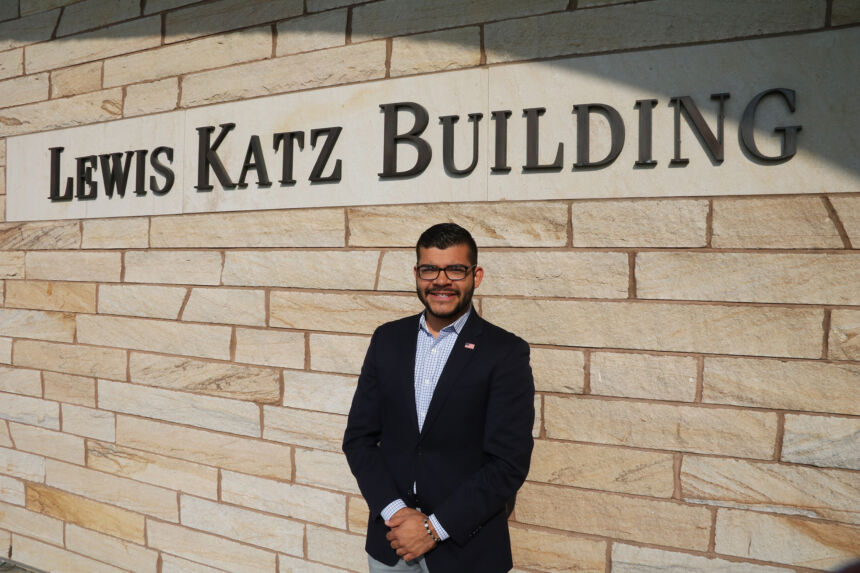September 07, 2016
State Department internship builds on student’s SIA studies

Jose Garcia may be focusing on international security for his degree at the School of International Affairs, but he became an expert on everything from passport surges to parental abductions during his 2016 summer internship with the State Department Bureau of Legislative Affairs in Washington, D.C.
Garcia—who landed the highly competitive internship at the State Department with help from the SIA Career Services Office—played a key role in preparing State Department witnesses for congressional hearings on a wide range of policy issues.
With as many as three congressional hearings a week at the height of the internship, Garcia was responsible for ensuring State Department staff testifying before Congress had a complete understanding of the policies in question and knew what kind of questions to expect—which means Garcia himself first had become an expert on the same topics, often in a very short amount of time.
“There was certainly a lot of pressure; if I missed one important detail or question a member of Congress might ask, it could change the course of the whole hearing,” Garcia said. “But I got to see State Department staff using my work and consulting my research in front of Congress, which was very rewarding.”
Although the work was challenging, Garcia said he was prepared for his role at the State Department thanks to his courses at SIA, particularly Foundations of Diplomacy and International Relations Theory taught by professor and former U.S. Ambassador Dennis Jett.
“Professor Jett would have us summarize expansive readings from books and scholarly articles, often in less than a page, which was great preparation for the State Department where I would be turning in five bullet points summarizing 20 articles,” Garcia said. “SIA also elevated my knowledge of foreign policy to a much higher level, which gave me a great foundation for the research I was doing at my internship.”
In addition to preparing research reports for State Department witnesses on various aspects of foreign and domestic policy, Garcia would also have to research which members of Congress would lead the hearings and anticipate their questions. Then Garcia and department staff members would sit down with the witness in a mock hearing, colloquially called a “murder board,” and critically question the witness as if they were members of Congress.
“Once I started at the State Department, it all clicked that everything I’d be learning and practicing in SIA was directly applicable to my career,” Garcia said.
